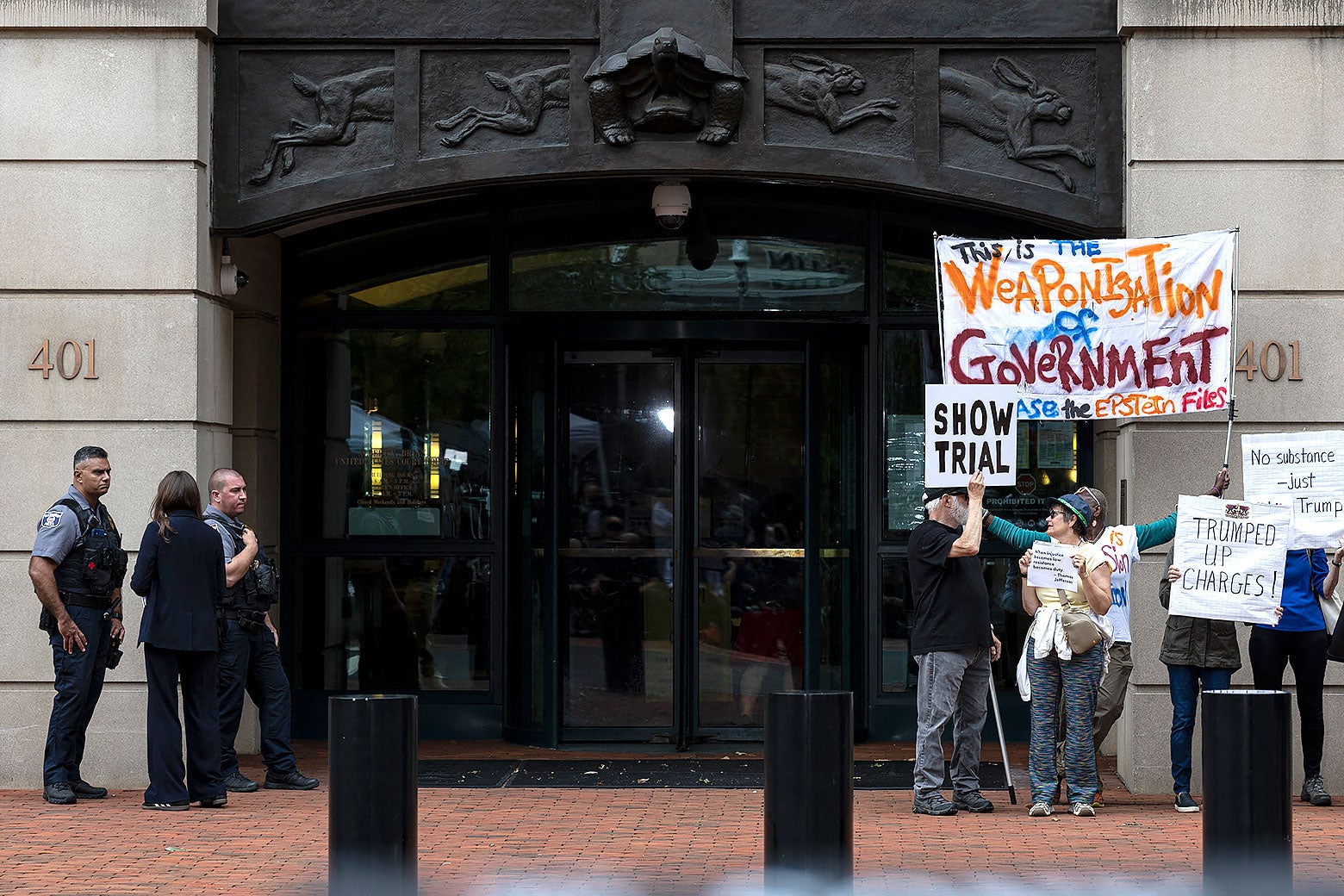Politics
Judge Challenges DOJ in High-Profile Case Against Comey

A preliminary hearing in the highly scrutinized case against former FBI Director James Comey revealed significant tensions between the judiciary and the Department of Justice (DOJ). On October 25, 2023, Magistrate Judge William Fitzpatrick expressed his frustration with federal prosecutors handling the case, highlighting concerns over their adherence to legal protocols. This hearing marks a pivotal moment in a case that many view as part of a broader political vendetta initiated by Donald Trump against his perceived adversaries.
Judge Fitzpatrick’s dissatisfaction stemmed from the prosecution’s failure to promptly provide essential records from their investigation. During the procedural hearing, he emphasized the necessity for transparency, ordering the DOJ to produce documents that could be vital for Comey’s defense. This demand underscores the ongoing scrutiny of the Justice Department’s actions, especially in cases involving high-profile figures who have clashed with the former president.
The animosity between Trump and Comey dates back to the 2016 presidential election, where Comey’s actions were pivotal. Two days before the election, Comey announced that the FBI would not recommend charges against Hillary Clinton, a decision that Trump later criticized, claiming it was evidence of Clinton’s guilt. The relationship soured further in March 2017, when Comey publicly confirmed the FBI’s investigation into potential Russian interference in the election. Trump’s subsequent dismissal of Comey in May 2017 was framed as a response to Comey’s refusal to pledge loyalty to the president.
Comey’s legal troubles escalated recently when he was indicted on charges related to allegedly false statements made during his testimony before the Senate Judiciary Committee in 2020. Critics argue that these charges reflect a pattern of vindictive prosecution, driven by Trump’s personal grievances rather than legitimate legal concerns. In a filing seeking to dismiss the indictment, Comey’s defense team argued that the prosecution is a direct result of Trump’s desire to retaliate against Comey for his criticisms during the presidency.
During the hearing, Judge Fitzpatrick did not shy away from pointing out what he characterized as a troubling trend in the prosecution’s approach. He described the case as an instance of “indict first, investigate second,” a phrase that resonates with concerns about selective and vindictive prosecution. Fitzpatrick’s comments suggest a commitment to upholding judicial integrity, resisting any attempts to transform the courtroom into a platform for political retribution.
This sentiment is vital not only for Comey’s defense but also for the broader implications it carries for the justice system. According to legal experts, the prohibition against vindictive prosecution is deeply rooted in constitutional due process. Rory Little from SCOTUSBlog notes that prosecutions based on personal animosity undermine public trust in the legal system and can have a chilling effect on free speech.
As the case unfolds, the dynamics at play will be closely monitored. Judge Fitzpatrick’s insistence on proper legal procedures serves as a reminder of the judiciary’s role in safeguarding against potential abuses of power. For many observers, this case encapsulates the ongoing struggle between political influence and legal accountability within the current administration.
In conclusion, the ongoing proceedings against James Comey highlight the intersection of legal and political realms in the United States. The actions of Judge Fitzpatrick signal a judicial resistance to perceived overreach by the executive branch, reinforcing the importance of maintaining a fair and impartial legal system. As this case develops, its implications may extend far beyond the courtroom, shaping the future of political discourse and accountability.
-

 Top Stories1 month ago
Top Stories1 month agoRachel Campos-Duffy Exits FOX Noticias; Andrea Linares Steps In
-

 Top Stories1 week ago
Top Stories1 week agoPiper Rockelle Shatters Record with $2.3M First Day on OnlyFans
-

 Top Stories6 days ago
Top Stories6 days agoMeta’s 2026 AI Policy Sparks Outrage Over Privacy Concerns
-

 Sports5 days ago
Sports5 days agoLeon Goretzka Considers Barcelona Move as Transfer Window Approaches
-

 Top Stories1 week ago
Top Stories1 week agoUrgent Update: Denver Fire Forces Mass Evacuations, 100+ Firefighters Battling Blaze
-

 Top Stories1 week ago
Top Stories1 week agoOnlyFans Creator Lily Phillips Reconnects with Faith in Rebaptism
-

 Top Stories5 days ago
Top Stories5 days agoWarnock Joins Buddhist Monks on Urgent 2,300-Mile Peace Walk
-

 Entertainment6 days ago
Entertainment6 days agoTom Brady Signals Disinterest in Alix Earle Over Privacy Concerns
-

 Top Stories7 days ago
Top Stories7 days agoOregon Pilot and Three Niece Die in Arizona Helicopter Crash
-

 Top Stories4 days ago
Top Stories4 days agoCBS Officially Renames Yellowstone Spin-off to Marshals
-

 Health2 months ago
Health2 months agoTerry Bradshaw Updates Fans on Health After Absence from FOX NFL Sunday
-

 Sports4 days ago
Sports4 days agoSouth Carolina Faces Arkansas in Key Women’s Basketball Clash




